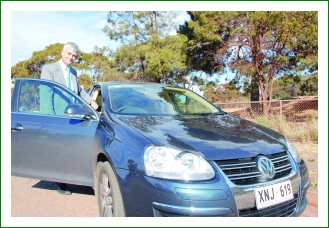Located on the upper Spencer Gulf in South Australia, Whyalla Council will progressively replace its fleet of six cylinder petrol fuelled sedans with four cylinder diesel driven vehicles.
The decision comes from Council’s continual review to minimise its overheads, while addressing environmental issues.
Total fuel savings could be up to $26,000 annually, with reduced greenhouse gas emissions of 45 tonnes.
In the past 12 months, some utilities were upgraded to diesel, while Council has recently taken delivery of its first diesel four cylinder sedan.
Whyalla’s Chief Executive Officer, Phil Cameron, said that due to a slump in the used car market, Council was behind in its fleet changeover program.
“This was accelerated by changing three vehicles before June 30,” he said. “Further vehicles are being scheduled in the 2007/2008 budget.”
The new diesel vehicles will be retained for a five year period where possible.
Phil Cameron said they have the capability of doing more kilometres and should have a good resale value due to their fuel sipping technology.
“There are now excellent technologies available in the diesel range, and although there may be a premium price to pay, operating cost savings are expected,” he said. “It is feasible to travel 1,074 kilometres on the highway in a diesel vehicle using 58 litres of fuel at a cost of $76.50 (7.1 cents per kilometre).
“Compare this to a six cylinder, unleaded sedan, which uses 74 litres of fuel over 870 kilometres at a cost of $93.91 (10.79 cents per kilometre).”
Phil Cameron sees the move to diesel as a triple win: a win for Council, a win for ratepayers and a win for the environment.
For further information contact Whyalla Council on (08) 8640 3444.
|
Diesel vehicles:
Diesel fuel:
|

















